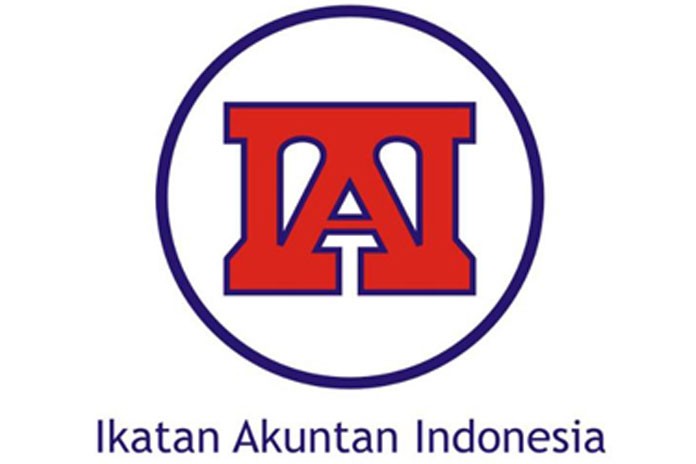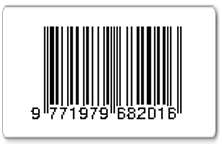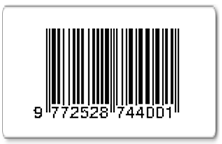Pemilihan Kualitas Auditor: pengujian perspektif efesiensi dan oportunisme (Studi pada perusahaan manufaktur yang terdaftar di BEI)
Abstract
Abstract
Agency conflict between principal and agent cause tendency on agent to act efficiently or oportunismly. The purpose of this study is to testing efficient and oportunisme perspective that might be a background to auditor quality choice on manufacturing company in Indonesia. This study used 132 annual report manufacturing company from 44 manufacturing company listed on IDX period 2011-2013 as a sample with purposive sampling method. Variabels represent effieciency perspective are institutional shareholding, foreign shareholding, audit complexity and committee audit characteristic. Whereas opportunism perspective represented by sponsor shareholding, state ownership and audit risk. The result of this research: institutional shareholding, audit complexity, committee audit meeting and committee audit financial literacy have influence toward auditor quality choice. Whereas foreign shareholding, committee audit independent, committee audit size, sponsor shareholding, state ownership and audit risk does not have influence toward audit quality choice. This result shows that efficiency perspective dominate background on auditor quality choice.
Key Words: Auditor quality choice, perspective, efficiency, opportunism, specialist industry auditor, ownership structure, audit complexity, committee audit characteristic, audit risk.
Abstrak
Konflik agen antara principal dan agent menyebabkan kecenderungan agen untuk bertindak secara efisien atau oportunism. Tujuan dari penelitian ini adalah untuk menguji perspektif efisien dan oportunisme yang mungkin menjadi latar belakang pilihan kualitas auditor pada perusahaan manufaktur di Indonesia. Penelitian ini menggunakan 132 perusahaan manufaktur laporan tahunan dari 44 perusahaan manufaktur yang terdaftar di BEI periode 2011-2013 sebagai sampel dengan metode purposive sampling. Variabel merupakan perspektif efisiensi adalah kepemilikan saham institusional, kepemilikan saham asing, kompleksitas audit dan karakteristik komite audit. Sedangkan perspektif oportunisme diwakili oleh kepemilikan saham sponsor, kepemilikan negara dan risiko audit. Hasil dari penelitian ini: kepemilikan saham institusional, kompleksitas audit, rapat komite audit dan audit komite literasi keuangan memiliki pengaruh terhadap pemilihan kualitas auditor. Sedangkan kepemilikan saham asing, audit komite independen, ukuran audit komite, kepemilikan saham sponsor, kepemilikan negara dan risiko audit tidak memiliki pengaruh terhadap pilihan kualitas audit. Hasil ini menunjukkan bahwa perspektif efisiensi mendominasi latar belakang pada pemilihan kualitas auditor.
Kata Kunci: Pilihan kualitas auditor, perspektif, efisiensi, oportunisme, auditor industri spesialis, struktur kepemilikan, kompleksitas audit, karakteristik audit komite, risiko audit.Full Text:
PDFReferences
Abbott, L.J, and Parker S. 2000. “Auditor Selection and Audit Committee Characteristics”, Auditing: A Journal of Practice and Theory Vol.19 No.2 Fall 2000 pg.47.
Abdullah, W.Z.W. 2008. “The Impact of Board Composition, Ownership and CEO Duality on Audit Quality: The Malaysian Evidence”, Malaysian Accounting Review, Vo.7, No.2, pp.17-28
Adeyemi, SB. Okpala, O. and Dabor E.L. 2012. “Factor affecting audit quality in Nigeria”, International Journal of Business and Social Science, Vol 3 No.20 pp. 198-209.
Copley, P.A. and Douthett, E.B. Jr. 2002. “The association between auditor choice, ownership retained, and earnings disclosure by firms making initial public offerings”, Contemporary Accounting Research, Vol. 19 No. 1, pp. 49-75.
Datar, S.M., Feltham, G.A. and Hughes, J.S. 1991. “The role of audits and audit quality in valuing new issues”, Journal of Accounting and Economics, Vol. 14, pp. 3-49.
DeFond, M.L., Wong, T.J. and Li, S. 2000. “The impact of improved auditor independence on audit market concentration inChina”, Journal ofAccounting and Economics,Vol. 28No. 3, pp. 269-305.
Eiscenhardt, K. 1989. “Agency Theory: An Assessment and Review”. Academy of Management Journal, Vol. 14: pp. 57-74.
Ghozali, Imam. 2011. Analisi Multivariate Lanjutan dengan Program SPSS. Semarang: Badan Penerbit Universitas Diponegoro.
Guedhami, O., Pittman, J.A. and Saffar, W. 2009. “Auditor choice in privatized firms: empirical evidence on the role of state and foreign owners”, Journal of Accounting and Economics, Vol. 48, pp. 151-171.
Hakim, F. and Omri, M.A. 2010. “Quality of the external auditor, information asymmetry, and bid-ask spread: case of the listed Tunisian firms”, International Journal of Accounting and Information Management, Vol. 18 No. 1, pp. 5-18.
Husnan, Suad. 2001. “Corporate Governance dan Keputusan Pendanaan: Perbandingan Kinerja Perusahaan dengan Pemegang Saham Pengendali Perusahaan Multinasional dan Bukan Multinasional.” Jurnal Riset Akuntansi. Manajemen, Ekonomi, Vol. 1 No. 1. Februari 2001.
Jensen, M.C. and Meckling, W.H. 1976. “Theory of the firm: managerial behaviour, agency costs and ownership structure”, Journal of Financial Economics, Vol. 3, pp. 305-360.
Jiraporn, Pornsit, and Yixi Ning. 2006. “Dividend Policy, Shareholder Rights, and Corporate Governance”. Journal of Applied Finance – Fall/winter 2006.
Karim, Waresul AKM and Zijl, Toni Van. 2013. “Efficiency and opportunism in auditor quality choice in emerging audit services markets. The case of Bangladesh”. International Journal of Accounting and Information Management Vol.21 No.3, pp. 241-256
Maharani, Desti. 2012. “Analisis Mekanisme Corporate Governance Perusahaan terhadap Pemilihan Kualitas Auditor Eksternal”. SNA XV. Banjarmasin.
Nazatul, F.S, Smith, M, and Ismail, Z. 2012. “The Impact of Ethnicity on Auditor Choice: Malaysian evidence”. Asian Review of Accounting, Vol. 20 No.3, pp. 198-221.
Piot, C. 2005. “Auditor reputation and model of governance: a comparison of France, Germany and Canada”, International Journal of Auditing, Vol. 9, pp. 21-44.
Prasita, Andin, dan Adi, P.H. 2007. “Pengaruh Kompleksitas Audit dan Tekanan Anggaran Waktu terhadap Kualitas Audit dengan Moderasi Pemahaman Terhadap Sistem Informasi”. Jurnal Ekonomi dan Bisnis FE Universitas Kristen Satya Wacana.
Skousen, Christoper J, et al., 2009. “Detecting And Predicting Financial Statement Fraud: The Effectiveness Of The Fraud Triangle And SAS No. 99”.
Wang, Q., Wong, T.J. and Xia, L. .2008. “State ownership, the institutional environment and auditor choice: evidence from China”, Journal of Accounting and Economics, Vol. 46 No. 1, pp. 112-134.
Watts, R.L. and Zimmerman, J.L. 1986. “Positive Accounting Theory”, Prentice-Hall, Englewood Cliffs, NJ.
Wulandari, N.P.Y., dan Budiartha, I.K. 2014. “Pengaruh Struktur Kepemilikan, Komite Audit, Komisaris Independen dan Dewan Direksi terhadap Integritas laporan Keuangan”. E-Jurnal Akuntansi Universitas Udayana 7.3, 574-586, ISSN:2302-8556.
Yasemin, Zengin K. 2013. “Is Corporate Governance a Determinant of Auditor Choice? Evidence from Turkey”. Vol.13 No.2 Nisan 2013 ss. 273-284.
Zureigat, Qasim Muhammad. 2011. “The Effect of Ownership Structure on Audit Quality”. International Journal of Business and Social Science Vol. 2 No. 10; June 2011.
www.idx.co.id diakses 05/06/2014
http://www.detikfinanceonline.com/Bakrie&Brothers diakses 17/05/2014
DOI: http://dx.doi.org/10.35448/jrat.v9i1.4282
Refbacks
- There are currently no refbacks.
pISSN 1979-682X eISSN 2528-7443
Jurnal Riset Akuntasi Terpadu (JRAT) is licensed under a Creative Commons Attribution 4.0 International License







